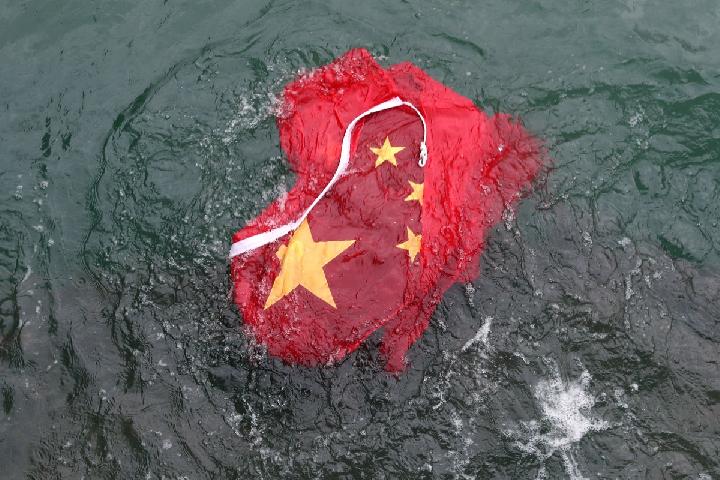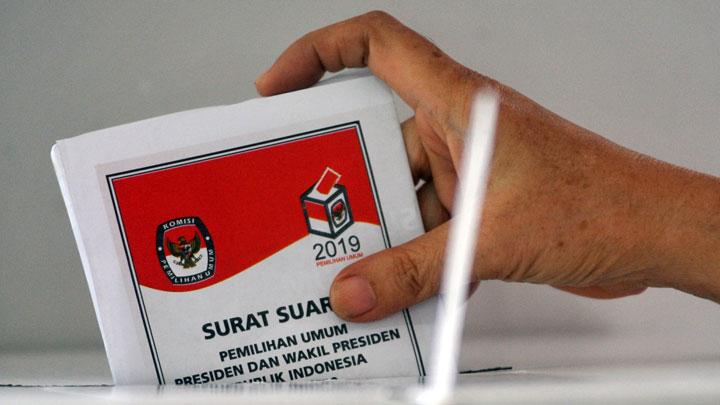Wooing Non-voters for Politics
Translator
Editor
11 April 2019 13:58 WIB

TEMPO.CO, Jakarta - In less than a month, Indonesia will be in the face of polls. To say this year’s election will become more contentious than ever is a tremendous understatement, bearing in mind that religious smear, the fatigue of fake news and obsolete issues has become an inherent part of the political discourse today.
President Joko Widodo, with his studiously chosen religious cleric Ma’ruf Amin as his Vice-Presidential running mate, will probably overthrow Muslim hard-liner issues addressed to him. Prabowo Subianto, on the other hand, with his deep-pocketed mate, Sandiaga Uno, has been echoing economic protectionism and hardcore nationalism narratives which seem to be the essence of their critics and counter-arguments towards the incumbent.
Eventhough both strongholds seem to agree that the economy is at the center of the campaign and most resonant with the majority of constituent, it is agreeable to state that this political war is more like a battle of the conservatives versus the progressives, though a few controversial moves made by the incumbent has been assumed reckless and run the risk of letting down their progressive voters. Between these two groups, however, there is one category who is not much put attention on: the non-voters (golput).
Voter apathy phenomenon is not only stimulated by external factors such as complicated bureaucracy that makes the registration takes work but primarily because the non-voters perceive that existing political system and available options do not ‘look’ like them nor ‘speak’ like them, let alone address their contention. This experience of being unrepresented develops into alienation which ultimately leads people to believe that not to choose is a choice itself, especially when it is safeguarded by the law.
In Indonesia, the popularity of non-voters concept was on the rise when golput first appeared as an antithesis to the ascendancy of Golkar Party and Indonesian Armed Forces (ABRI) during the New Order which arbitrarily controlled many of people’s life joints including their political participation. Therefore, it is no wonder that Indonesia’s political participation was higher than ever, reaching 94 percent during that time. Similar outcomes ensued from the law and state intervention also occurred in countries such as Austria, Singapore or Belgium. After New Order, however, the number of non-voters has consistently dwelled above 15 percent from time to time, be it on legislative or executive elections. It is evident that the level of political participation induced by external mobilization will not sustain every now and then, compared to voluntary and participatory experience.
Identifying the core problem, the question is how we can create an election ecosystem that is competitive, able to promote organic involvement among constituent and particularly resonant to non-voters. To many people, sometimes two is not enough.If they are not able to identify with one or many principles, values or narrative of the available candidates, and the clear majority of the group shall abandon the matter. There is a prevailing conception that in the face of options of ‘second best’ or ‘the lesser of two evils’, they feel estranged or disaffected then somehow left out of the political process. On this subject, empathy and communication are key in order to rake in attention and trigger intent to compromise.
Research by the Center for Information and Research on Civic Learning and Engagement conducted in 2018 has consistently shown every year that direct contact by political campaigns is effective in engaging people and driving voter turnout. Political candidates nowadays unfortunately often misconceive constituent group other than the elites would respond positively to flashy and sensational political campaigns, instead of showing efforts to comprehend the needs of their constituent and educate them when necessary.There is ample opportunity to focus on civic engagement, elections even those too young to vote and encourage them research, discuss and connect with candidates. Efforts to build political cognizance among non-voters need to be inherent in willingness to give them the stage to express their selves at their own terms.
Another kind of non-voters is those who make the decision based on uninformed dislikeness towards politics for too long. These category needs to be approached with empathy assuring that developing dislikeness towards something is a human right and valid as long as it is informed, not violating rules nor harmful to people. They might hate politics, but they also need to be reminded, if not educated, that many things close to their daily life such as education, healthcare, and prices of goods, can be realized because of politics.
Many studies, such as Solomon Asch Center for Study of Ethnopolitical Conflict at the University of Pennsylvania, have confirmed that lack of knowledge fuels dislikeness, abandonment and fear toward something. Constituent needs to understand how exactly the government works, how public goods and well-being are provided and, therefore, how their vote actually matters along that process. Substantive change is made when we reach out to a disaffected electorate, inspire and motivate them to vote.
Many non-voters are also not willing to be drawn into politics for issues that felt personally distant to them. In this regard,political actors also need to be able to put political participation into a broader contextby encouraging them to look beyond themselves, to grow empathetical understanding of how far their votes affect not only them but also millions of other people especially the children, the poor and the vulnerable right holders.
By all accounts, Indonesia political candidates have the biggest room for improvement, but the responsibility to build a politically active and organically involved community sits at everyone’s shoulders. We must ensure as many people as possible will feel sufficiently inspired and well-informed to head to the polls and vote.Or politically disengaged community will lead us to the death of democracy.
SIMON SIBARANI
The writer is a communication consultant based in Jakarta, specializing in development and public affairs. He currently provides strategic counsel to international organizations, government agencies, and a number of companies that aim to refine their communication and advocacy work.























